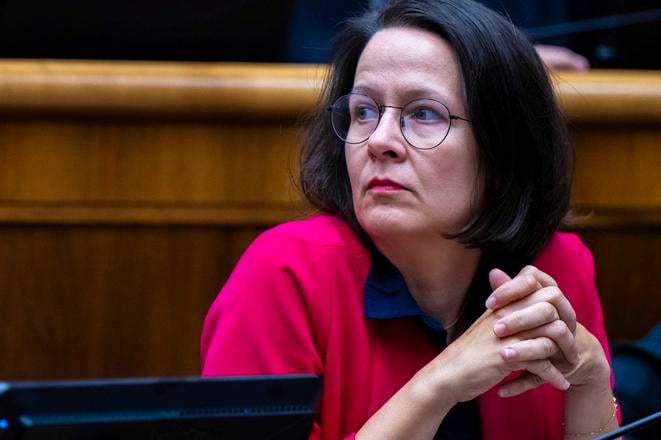Some Ukrainian refugees will receive less support from Slovakia starting in March next year, following a swift and minor amendment to immigration laws—the Act on the Residence of Foreigners and the Asylum Act—approved by coalition legislators on Thursday.
From March 1, 2025, individuals granted Ukrainian refugee status after February 28, 2025 will be permitted to stay in asylum facilities for a maximum of 60 days, down from the current 120 days. Similarly, the accommodation allowance will be limited to the first 60 days, rather than 120 days as has been the case since July of this year.
The changes, approved through a fast-track legislative procedure without consultation with, for instance, non-governmental organisations helping refugees, will not affect vulnerable groups such as pensioners over 65, children under five, or single caregivers of these children.
We need to save money, the Interior Ministry argues
These revisions have drawn criticism from opposition MPs, including Zuzana Števulová and Lucia Plaváková (both from Progressive Slovakia), who condemned the last-minute addition to the already submitted amendment during a November 27 human rights parliamentary committee meeting.
The last-minute changes affecting future Ukrainian refugees arriving in Slovakia were first presented by coalition MPs during Wednesday’s session of the defence and security committee.
“Is this change really worth it?” asked PS legislator Irena Bihariová, a member of the defence and security committee, referring to the reduced support periods introduced without prior discussion.
Deputy Interior Minister Peter Krauspe defended the changes in the committees, claiming that Ukrainian refugees generally secure employment and housing within two months of arriving in Slovakia. He cited an unspecified analysis to support his point. “We need to save money where possible,” Krauspe told the defence and security committee on November 27, arguing that Slovakia is one of the region’s most generous countries in supporting Ukrainian refugees.
Opposition MPs, however, argued that the reductions are excessive, pointing out that neighbouring countries offer support for up to 90 days. They also criticised the lack of transparency and consultation in introducing these last-minute changes. The government claims that the measures will save the Interior Ministry €2 million, a necessary step given current pressures on public spending.
A coalition MP sends his opponents to Ukraine
During the parliamentary debate on Thursday, MP Števulová called the coalition’s approach “immoral” and “unacceptable.” She criticised the government for planning to save €2 million on refugee support while allocating over €3 million to reimburse fines imposed for Covid-19 restriction violations during the pandemic.
“We [Progressive Slovakia] were ready to support the original amendment, but we cannot back it now,” Števulová said, reiterating her objection to the rushed legislative process.
All 76 coalition MPs voted for the proposed changes to immigration laws.
Other opposition female MPs described the changes as “insensitive” and “shameful.” Male colleagues criticised Russia-friendly Prime Minister Robert Fico for his plans to visit Moscow next year and accused him of encouraging Ukrainians to seek refuge elsewhere, despite Slovakia’s need for tens of thousands of foreign workers. They also criticised the anti-immigration government for favouring workers from Asia, whom these MPs deliberately described as Muslims, over Ukrainians, who are predominantly Christian and culturally closer to Slovaks.
In response, Michal Bartek, a 25-year-old MP from the coalition party Hlas, retorted: “If you want to help Ukrainians, go to Ukraine.” He argued that Slovakia has been so generous that Slovaks themselves have had to tighten their belts.
Števulová, who has extensive experience working with migrants in Slovakia, countered: “It should be a point of pride for Slovakia to be the most generous country in supporting refugees.”


